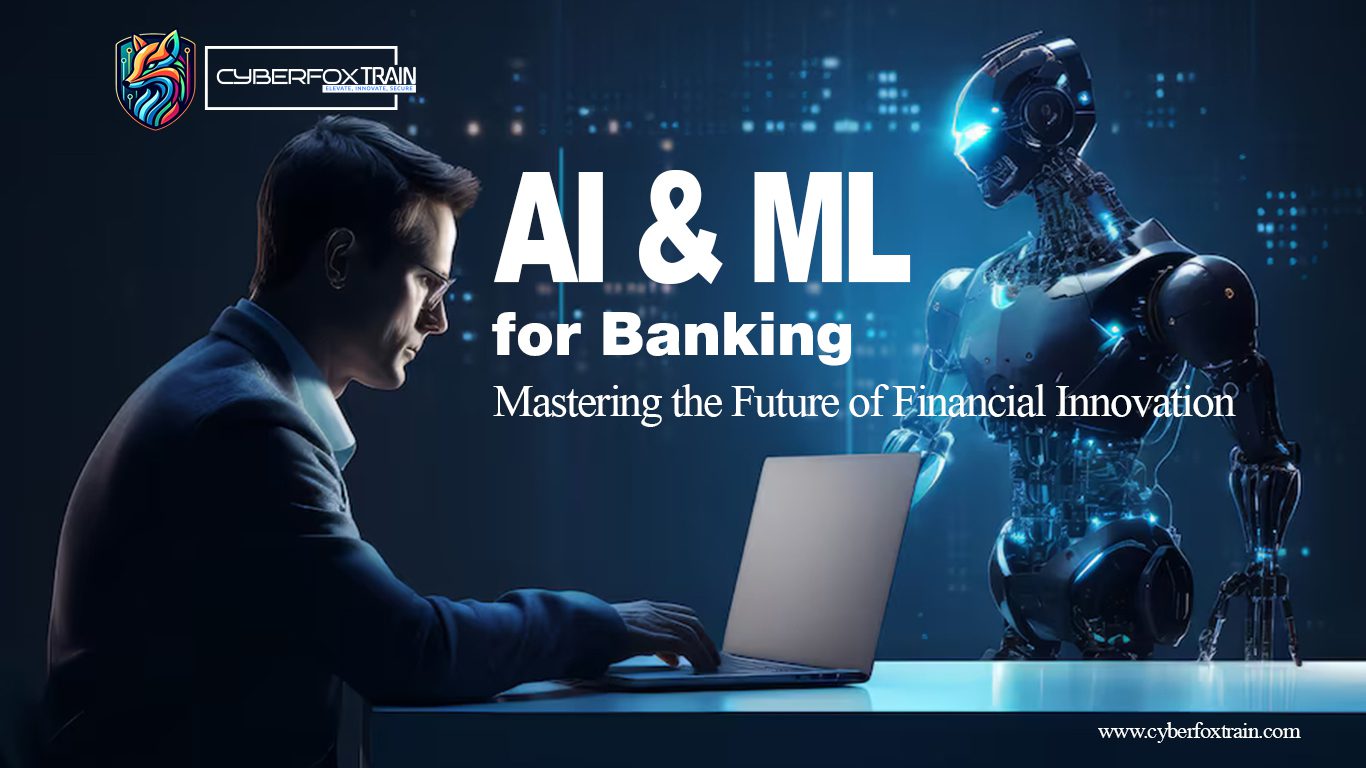Mastering the Future of Financial Innovation
The AI & ML for Banking course is tailored to help professionals in the financial industry harness the power of Artificial Intelligence (AI) and Machine Learning (ML). This hands-on course covers fundamental concepts, practical applications, and advanced techniques to solve banking-specific challenges such as fraud detection, risk management, customer engagement, and regulatory compliance. Participants will also explore the ethical considerations and future trends shaping AI in the banking sector.
Course Objectives
- Gain a deep understanding of AI/ML concepts and their applications in banking.
- Explore real-world use cases such as fraud detection, credit risk assessment, and customer segmentation.
- Develop hands-on experience with AI/ML tools and frameworks like TensorFlow and Scikit-learn.
- Understand ethical, regulatory, and operational challenges in implementing AI in banking.
- Prepare for future trends and innovations in AI-driven banking solutions.
Course Outline
Day 1: Introduction to AI and Machine Learning in Banking
- Welcome and Course Overview
- Introduction to the course
- Objectives and expectations
- AI and ML Fundamentals
- Overview of Artificial Intelligence
- Introduction to Machine Learning
- Key concepts and terminologies
- AI in Banking: Current Landscape
- History and evolution of AI in banking
- Current trends and applications
- Data in Banking
- Importance of data in AI/ML
- Types of data in banking (structured, unstructured)
- Data collection and preprocessing techniques
- Case Studies and Use Cases
- Real-world examples of AI/ML in banking
- Discussion and analysis of successful implementations
Day 2: Machine Learning Techniques for Banking
- Supervised Learning
- Definition and applications
- Techniques: Regression, Classification
- Use cases: Credit scoring, fraud detection
- Unsupervised Learning
- Definition and applications
- Techniques: Clustering, Anomaly detection
- Use cases: Customer segmentation, anomaly detection
- Reinforcement Learning
- Definition and applications
- Techniques and algorithms
- Use cases: Automated trading, portfolio management
- Deep Learning
- Introduction to deep learning
- Neural networks and architectures
- Use cases: Image recognition, natural language processing (NLP) in banking
Day 3: AI Applications in Banking
- Fraud Detection and Prevention
- Techniques for fraud detection
- Implementing ML models for fraud prevention
- Case studies and real-world examples
- Risk Management
- Risk assessment using AI/ML
- Credit risk modeling
- Operational and market risk management
- Customer Service and Engagement
- AI in customer support (chatbots, virtual assistants)
- Personalized banking and recommendation systems
- Enhancing customer experience with AI
- Regulatory Compliance and Anti-Money Laundering (AML)
- AI for regulatory compliance
- Techniques for AML detection
- Case studies and real-world examples
Day 4: Advanced AI/ML Techniques and Tools
- Natural Language Processing (NLP)
- NLP techniques and applications in banking
- Sentiment analysis, text classification, and summarization
- Use cases: Customer feedback analysis, automated report generation
- Robotic Process Automation (RPA)
- Introduction to RPA
- Implementing RPA in banking operations
- Use cases: Process automation, workflow optimization
- Big Data Analytics
- Role of big data in AI/ML
- Tools and platforms for big data analytics
- Use cases: Customer insights, predictive analytics
- AI/ML Tools and Platforms
- Overview of popular AI/ML tools and frameworks
- Hands-on sessions with tools (e.g., Python, TensorFlow, Scikit-learn)
- Building and deploying AI/ML models
Day 5: Ethical Considerations, Challenges, and Future Trends
- Ethical Considerations in AI/ML
- Bias and fairness in AI
- Data privacy and security
- Ethical AI frameworks and guidelines
- Challenges in Implementing AI/ML in Banking
- Technical and operational challenges
- Overcoming barriers to adoption
- Strategies for successful implementation
- Future Trends in AI/ML for Banking
- Emerging technologies and innovations
- Future applications and opportunities
- Preparing for the future of AI in banking
Course Features
- Lecture 0
- Quiz 0
- Duration 5 days
- Skill level All levels
- Language English
- Students 0
- Assessments Yes
Requirements
- Basic understanding of banking operations and data analysis.
- Familiarity with programming and data tools (e.g., Python) is recommended but not mandatory.
Features
- Comprehensive Curriculum: Covers foundational and advanced AI/ML techniques tailored for banking.
- Hands-On Learning: Practical exercises with real-world banking datasets.
- Expert Guidance: Led by industry professionals with extensive experience.
- Future-Oriented: Insights into emerging trends and innovations in AI for banking.
- Certification: Earn a completion certificate to enhance your professional profile.
Target audiences
- Banking professionals seeking to implement AI/ML solutions.
- IT and data science experts in the financial sector.
- Risk managers, compliance officers, and financial analysts.
- Enthusiasts aiming to lead AI-driven transformations in banking.






